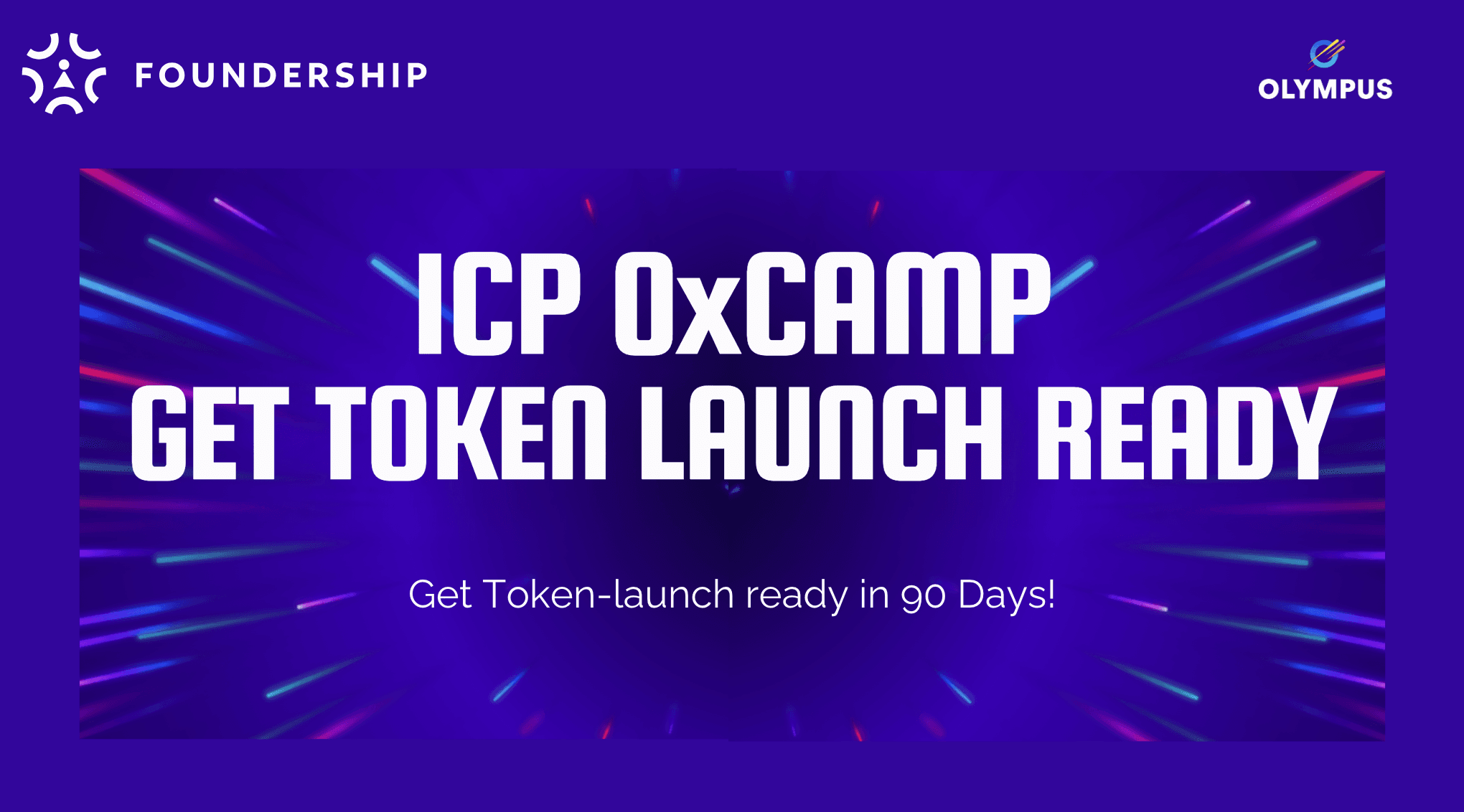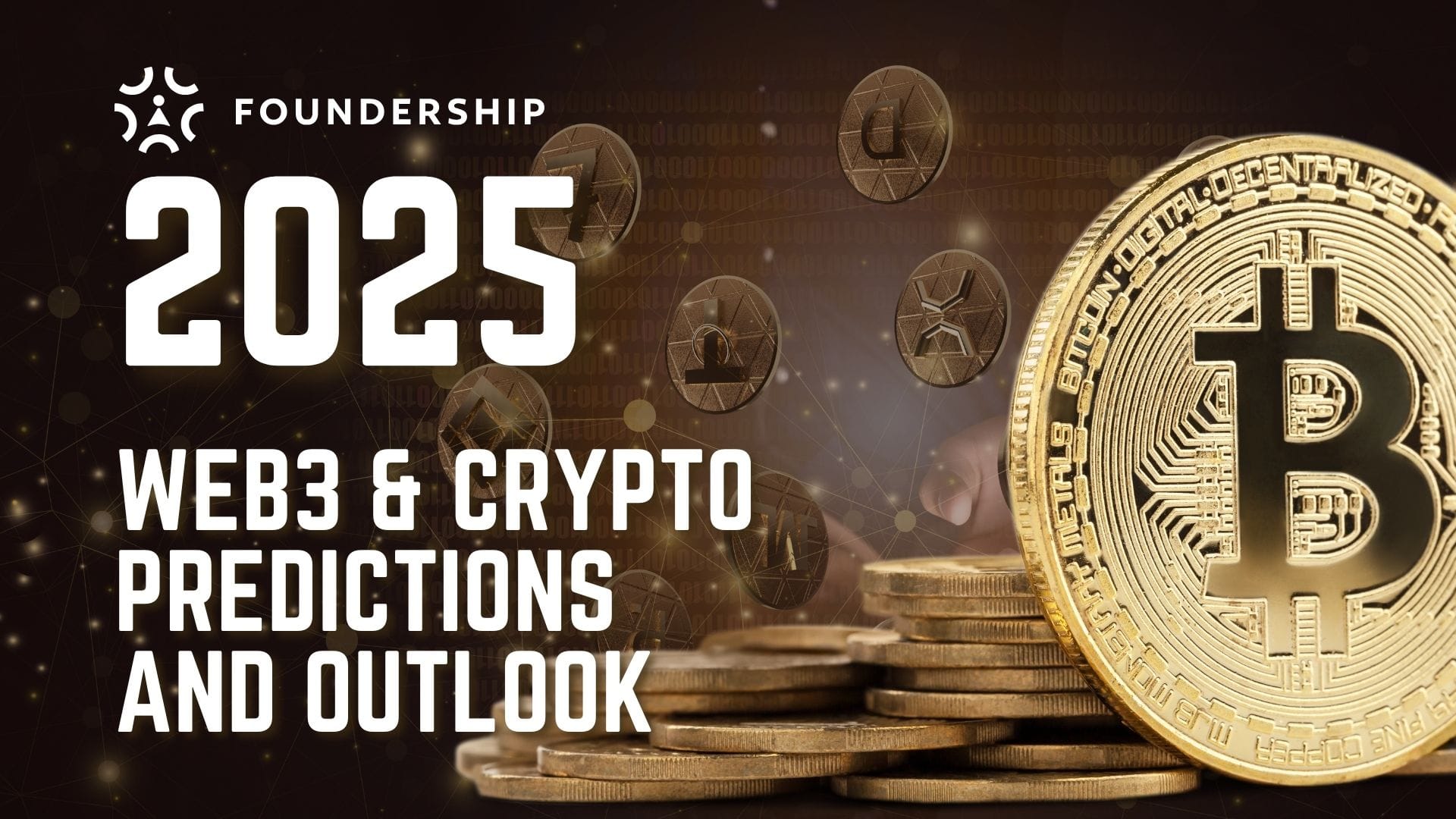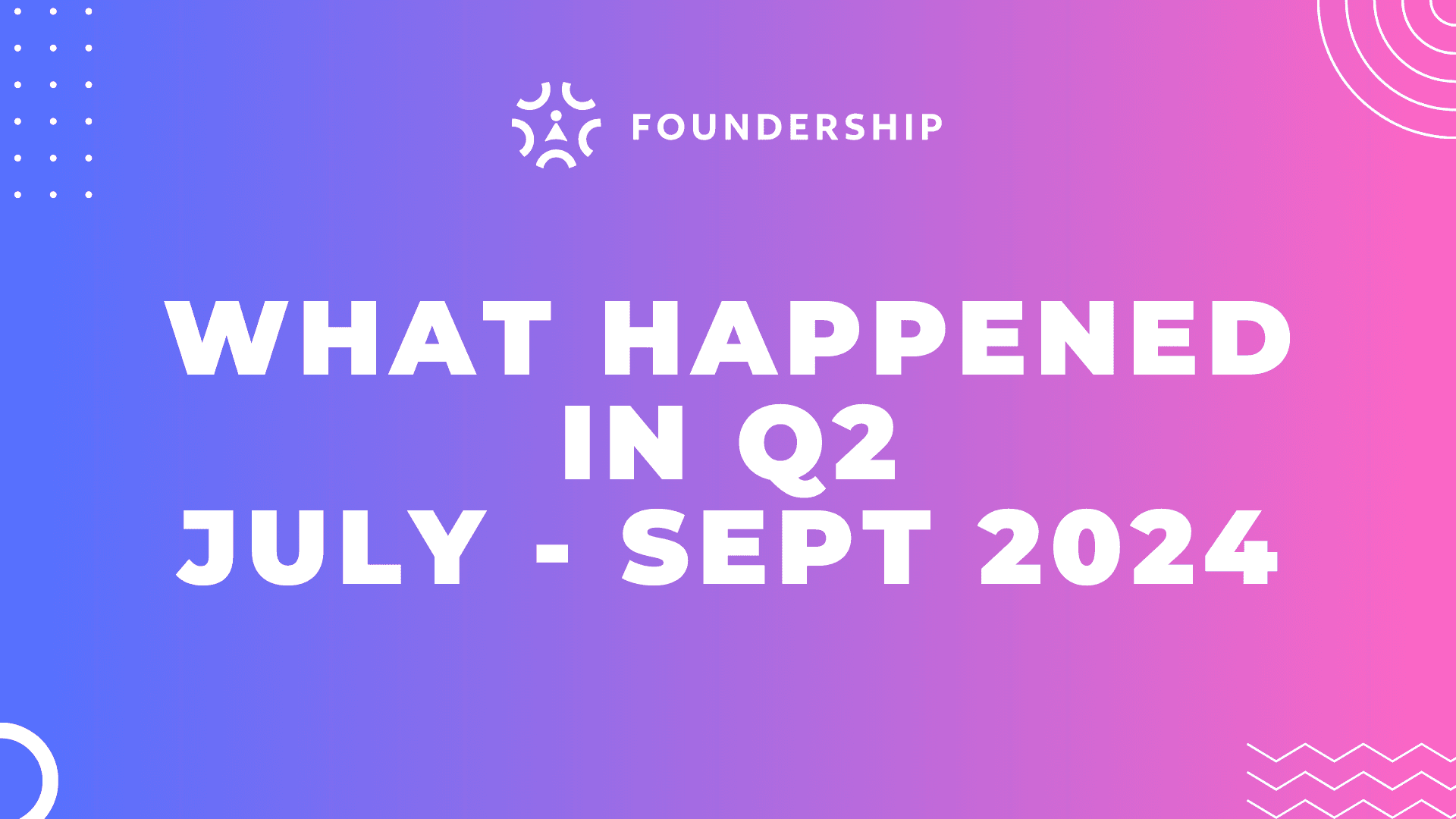Real World Asset (RWA), the concept is simple yet profound: transforming physical assets into digital tokens that can be traded, fractionally owned, and managed on decentralized platforms powered by algorithms!
But amidst the excitement and promise, one must ask—can the tangible world truly be digitized, or is this just another illusion in the ever-volatile crypto space?
RWA is the largest niche in the crypto market, with a market cap of around $120 billion. Surprised? Well, it turns out stablecoins are nothing but tokenized fiat currencies. (We're talking about stablecoins with real backing, like USDT and USDC, not algorithmic stablecoins.)
USDT has been around since 2014, so the RWA sector has been in the game for 10 years, even though it might seem like a recent trend. With $867T in traditional markets ready to be disrupted by blockchain-based technologies, the opportunity to systematically improve global economies is real.
In this comprehensive guide, we delve into the complexities of RWA tokenization, exploring its potential, challenges, and the reality behind the buzz.
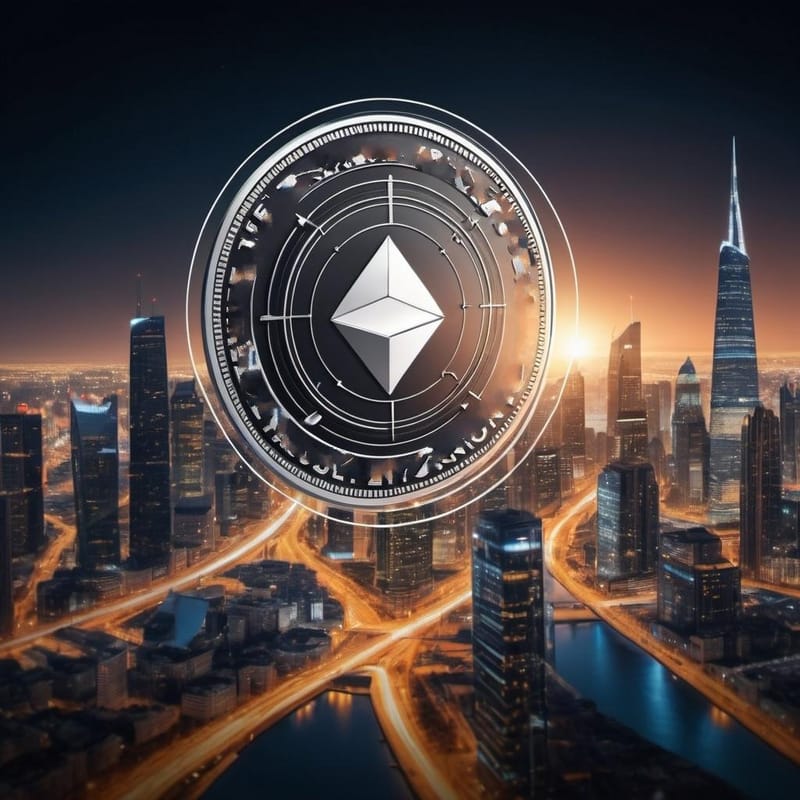
Real-World Assets (RWA) : A Comprehensive Guide
Introduction
The integration of Real-World Assets (RWA) into the blockchain ecosystem represents one of the most promising and transformative trends in the crypto industry. Over the past ~24 months, significant progress has been made, and RWAs are poised to play a crucial role in bridging traditional finance with decentralized finance (DeFi). This guide explores the concept of RWA, its necessity, evolution, customer base, regulatory landscape, key players, and future opportunities.
What is RWA?
Real-world assets (RWA) refer to physical or tangible assets such as real estate, commodities, invoices, and more that are tokenized and brought onto the blockchain. This tokenization process involves creating a digital representation of the physical asset, allowing it to be traded, transferred, and utilized within the blockchain ecosystem.
In recent years, the concept of tokenization has gained significant attention in the world of finance and investment. Real-world asset (RWA) tokenization, in particular, has emerged as a game-changer, revolutionizing the way traditional assets are bought, sold, and traded. With the growing adoption of blockchain technology and the increasing demand for digital assets, the real world asset tokenization is poised to experience substantial growth in the coming years.
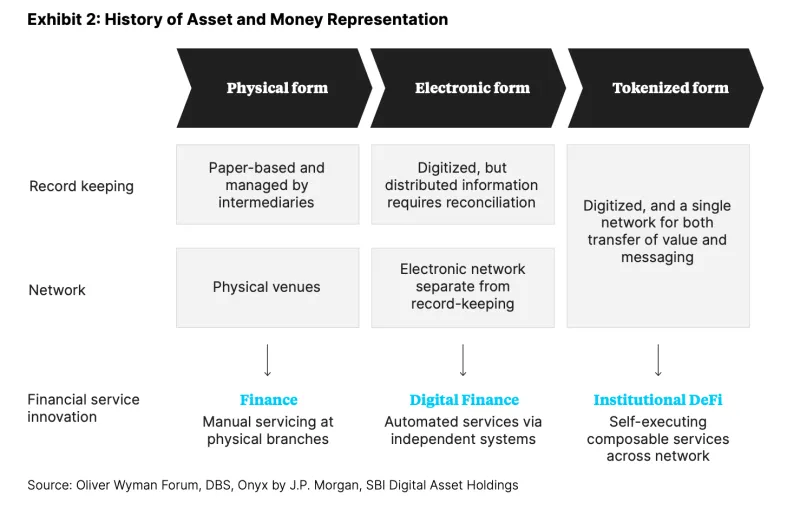
Industries that can be Tokenized!
1. Real Estate
The real estate industry has been quick to recognize the benefits of RWA tokenization. By converting physical properties into digital tokens, real estate assets can be traded more efficiently and with greater liquidity. This opens up new opportunities for investors, eliminates barriers to entry, and allows for fractional ownership of high-value properties.
2. Art and Collectibles
Tokenizing art and collectables allows investors of all sizes to gain exposure to the traditionally exclusive world of high-end art. By dividing artwork or collectible items into fractional shares represented by digital tokens, investors can diversify their portfolios and participate in the potential appreciation of valuable assets.
3. Private Equity
The tokenization of private equity investments simplifies the process of raising capital and improves the liquidity of traditionally illiquid assets. Investors can now buy and sell shares in private companies through digital tokens, reducing barriers to entry and providing greater accessibility to a broader investor base.
4. Commodities
Tokenizing commodities such as gold, silver, precious metals, and oil presents a more accessible and efficient way for investors to participate in the commodity market. Digital tokens representing fractions of physical commodities can be easily traded, allowing investors to take advantage of price movements without the need for physical ownership or complex derivatives.
5. Venture Capital
RWA tokenization has the potential to revolutionize the world of venture capital. Startups can tokenize their equity, allowing early-stage investors to buy and sell shares easily. This not only streamlines the capital-raising process but also provides liquidity to investors who would traditionally have to wait for an exit event, such as a merger or acquisition, to realize returns on their investments.
6. Infrastructure:
Large-scale infrastructure projects, like renewable energy installations or transportation networks, are being tokenized to raise capital more efficiently and allow for broader participation.
7. Intellectual Property (IP):
Patents, copyrights, and other forms of intellectual property are being tokenized, enabling new ways to monetize and trade these intangible assets.
8. Supply Chain Assets:
Components within supply chains, such as inventory or equipment, are being tokenized to improve transparency, traceability, and financing options.
10. Agriculture:
Farmland, crops, and livestock are increasingly being tokenized, enabling fractional ownership and investment in agricultural assets.
11. Carbon Credits:
Tokenizing carbon credits allows for more efficient trading and helps companies and individuals offset their carbon footprints in a transparent manner.
12. Debt Instruments:
Bonds, loans, and other debt instruments are being tokenized to enhance liquidity and provide new investment opportunities. This includes corporate bonds, municipal bonds, and mortgage-backed securities.
13. Compute Infrastructure:
This includes the tokenization of computational resources such as processing power, storage, and networking, allowing these assets to be traded, accessed, and managed on blockchain platforms

Why You Need RWA
RWAs are essential for several reasons:
1. Diversification: They provide a means to diversify investment portfolios within the crypto space, reducing risk associated with crypto volatility.
2. Liquidity: Tokenizing illiquid assets like real estate can unlock liquidity, enabling fractional ownership and easier transferability.
3. Access: RWAs democratize access to high-value assets, allowing smaller investors to participate in markets previously accessible only to wealthy individuals or institutions.
4. Efficiency: Blockchain technology can streamline processes such as property transfers, reducing costs and increasing transparency.
How RWA Has Evolved
In the past two years, RWAs have evolved significantly:
1. Technological Advancements: Enhanced blockchain protocols and smart contracts have facilitated more secure and efficient tokenization of RWAs.
2. Regulatory Clarity: Increasing regulatory clarity in various jurisdictions has bolstered confidence in RWA investments.
3. Institutional Adoption: Major financial institutions and corporations have begun exploring and adopting RWA solutions.
4. Innovative Platforms: New platforms dedicated to RWA have emerged, offering specialized services for tokenization, trading, and management.

Who Are They Serving and Where Are These Users/Customers?
RWAs serve a diverse range of customers:
1. Retail Investors: Individual investors seeking to diversify their portfolios with real-world assets.
2. Institutional Investors: Hedge funds, pension funds, and other institutional entities looking for new asset classes.
3. Property Developers and Owners: Real estate developers and property owners seeking liquidity.
4. Businesses: Companies using tokenized assets for supply chain financing and other purposes.
These users are globally distributed, with significant activity in North America, Europe, and increasingly in Asia and Africa.
What Do These Customers Do?
Customers engage in various activities:
1. Investment: Buying and holding tokenized assets as long-term investments.
2. Trading: Actively trading RWAs on blockchain-based marketplaces.
3. Lending and Borrowing: Using RWAs as collateral for loans in DeFi protocols.
4. Payments and Settlements: Utilizing RWAs for cross-border payments and settlements in a more efficient manner.
RWA opportunities today:
The RWA market is poised for a revolution, but the foundation needs to be laid first. Key opportunities lie in building robust infrastructure:
Secure and scalable level 1 blockchains with integrated KYC/AML checks: This will establish trust and transparency by tying real-world identities to RWAs on the blockchain.
Standardization of tokenization protocols: This will ensure smooth and efficient representation of various real-world assets on the blockchain.
Developing regulatory frameworks: Clear regulations will enable compliant tokenization and trading of RWAs,fostering market adoption.
These efforts will unlock the potential for increased liquidity, fractional ownership, and broader participation in traditionally illiquid asset classes.

Real-World Asset (RWA) ERC Standards
Real-World Asset (RWA) ERC standards are Ethereum-based token standards that facilitate the representation, management, and transfer of real-world assets on the blockchain. These standards provide a framework for creating, issuing, and managing tokenized assets, ensuring compatibility and interoperability across various platforms and applications within the Ethereum ecosystem.
Key ERC Standards for RWA
- ERC-20
- Description: The ERC-20 standard defines a common set of rules for fungible tokens on the Ethereum blockchain. These tokens are interchangeable and have the same value, making them suitable for representing assets like commodities, currencies, or stocks.
- Use Cases: Tokenization of assets such as gold, oil, and company shares.
- Key Features: Standardized interface for token transfer and balance querying, making integration with wallets and exchanges straightforward.
- ERC-721
- Description: The ERC-721 standard specifies a protocol for non-fungible tokens (NFTs), which are unique and cannot be exchanged on a one-to-one basis with other tokens. This uniqueness makes ERC-721 ideal for representing individual real-world assets.
- Use Cases: Tokenization of unique assets like real estate properties, art, and collectibles.
- Key Features: Each token has a unique identifier, metadata, and ownership history, ensuring the uniqueness and provenance of the asset.
- ERC-1155
- Description: The ERC-1155 standard supports both fungible and non-fungible tokens within a single contract, providing flexibility and efficiency in managing multiple asset types.
- Use Cases: Tokenization of assets that require a combination of fungible and non-fungible properties, such as gaming items, real estate portfolios, and mixed asset funds.
- Key Features: Batch transfer capabilities, reduced transaction costs, and flexible token management.
- ERC-1400
- Description: The ERC-1400 standard is designed specifically for security tokens, providing a framework for compliant issuance and management of tokenized securities.
- Use Cases: Tokenization of financial securities like bonds, equities, and other investment vehicles.
- Key Features: Enhanced compliance features, including transfer restrictions, whitelisting, and detailed ownership records to meet regulatory requirements.
- ERC-3643
- Description: Also known as the "compliant ERC-20," this standard is used for securities and includes features to ensure compliance with various regulations.
- Use Cases: Similar to ERC-1400, used for tokenized securities requiring regulatory compliance.
- Key Features: Includes functionalities like identity management and transfer control to adhere to legal requirements.
Benefits of Using ERC Standards for RWA
- Interoperability: ERC standards ensure that tokenized assets can be easily integrated with existing Ethereum infrastructure, including wallets, exchanges, and DeFi platforms.
- Liquidity: Tokenized RWAs can be traded on secondary markets, providing liquidity that is often lacking in traditional asset markets.
- Transparency: Blockchain technology ensures transparent and immutable records of ownership and transaction history, reducing the risk of fraud and enhancing trust.
- Accessibility: Fractional ownership enabled by tokenization allows a broader range of investors to participate in asset markets that were previously inaccessible due to high entry barriers.
Challenges and Considerations
While RWAs on public chains provide many benefits for both institutions and investors alike, there are also a number of challenges that must be considered to realize their potential:
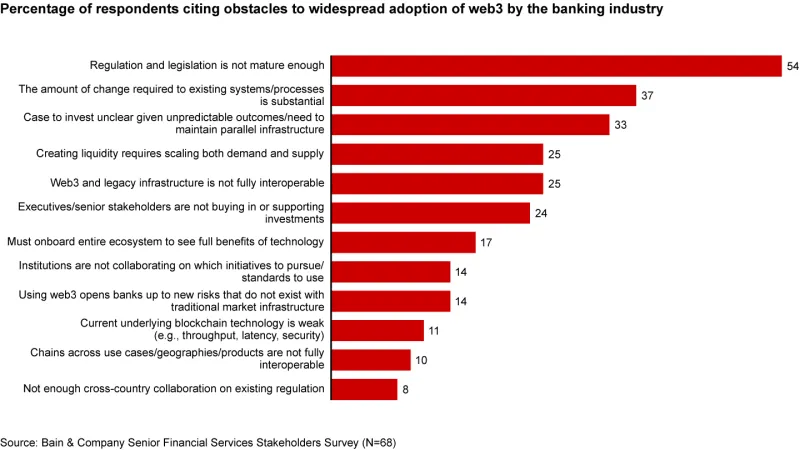
Based on a Bain & Company survey of senior executives at financial institutions, the majority report that regulation and legislation around Web3 is not mature enough. (source)
- Regulatory Compliance: Navigating the regulatory landscape for tokenized assets is complex, as different jurisdictions have varying requirements and regulations.
- Security: Ensuring the security of tokenized assets and the smart contracts governing them is crucial to prevent hacks and loss of value.
- Adoption: Widespread adoption of tokenized RWAs requires collaboration across various stakeholders, including regulators, financial institutions, and technology providers.
RWA ERC standards play a critical role in the tokenization of real-world assets, providing a robust and flexible framework for asset management on the Ethereum blockchain. By leveraging these standards, projects can enhance liquidity, transparency, and accessibility in asset markets, paving the way for a more inclusive and efficient financial ecosystem.
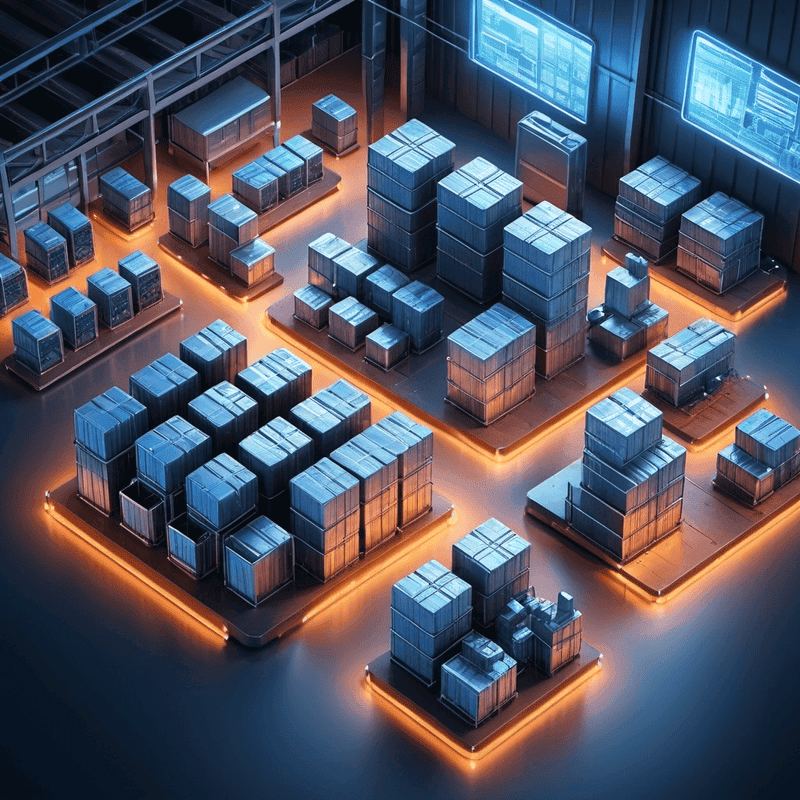
The Future of RWA
The future of RWAs is promising,
Fueling DeFi growth: RWAs can empower DeFi to offer novel products like collateralized loans backed by real estate or fractional ownership of high-value artwork.
Financial inclusion: DeFi powered by RWAs can empower individuals with limited access to traditional finance to participate in these markets and potentially grow their wealth.
Bridging the on-chain/off-chain gap: Integrating off-chain businesses is crucial for ensuring the legitimacy of data feeding into the blockchain. Secure oracles and data verification protocols can bridge this gap and create a trustworthy ecosystem.
- Increased Adoption: More widespread adoption across various sectors.
- Enhanced Interoperability: Better interoperability between different blockchain networks.
- Advanced Use Cases: New use cases in areas like supply chain, insurance, and gaming.
- Improved Regulatory Frameworks: More robust and clear regulations to support growth and protect investors.
Views from Foundership RWA Portfolio
At Foundership, we are committed to being more than just investors and acceleration partners! We are partners in innovation, providing our portfolio companies with the resources, mentorship, and strategic guidance they need to succeed.
Pritam Dutta - CoFounder Zoth
Boston Consulting Group (BCG) projects that the tokenization of real-world assets (RWAs) will reach $16 trillion by 2030. As major banks and government institutions embrace RWAs, Zoth sees vast potential in 2024.
We are building a one-stop crypto yield layer for sustainable yield, combining on-chain permissioned RWAs with permissionless DeFi fixed-yield products. Secure and sustainable yield in DeFi represents a multi-trillion-dollar opportunity, and Zoth is on the path to $1 billion TVL, supported by RWAs.
Arul Prakash - CoFounder - Buk Protocol
Conventionally real world assets have been focused on financial assets or highly institutional assets things like treasury bond, financial instruments and invoice financing and other other mechanisms that can lead to adoption, but for mass adoption, we need mass users and mass users can only come when consumer use cases are adopted.
When it comes to real world assets BUK protocol is working on exactly this by bringing consumer real assets to the landscape by making tickets hotel room, bookings, airline tickets, organizable and transferable, and tradable, thereby creating a secondary markets by creating illiquid markets liquid.
William Ralston Saul - CEO - Jade City
Tokenizing minerals and gemstones on the blockchain brings greater efficiency, transparency, and opens up exclusive assets to a global community of investors. Jade City is at the forefront of this seismic shift, initially focusing on jade before expanding to incorporate a wide range of gemstones and minerals.
While diamonds, rubies, sapphires, and emeralds dominate the western perception of high-value gemstones, a hidden behemoth lies in the heart of China: the jade industry. With approximately $50 billion in annual official trade, it surpasses even the Chinese diamond market.
For the first time, Jade City enables a global community to tap into this immense market, providing access to earn and trade jade early in the value chain
Jade City’s tokenomics are designed to maximise community value by channeling all profits into a “Buy and Burn” token strategy, creating a potent combination of buy pressure and deflationary token supply.
Raj Bagadi, CEO and Founder of E Money Network
RWA tokenization is poised to drive the next phase of growth in the crypto market. However, the key to developing a robust RWA-centric infrastructure and ecosystem lies in regulatory compliance. RWAs have always operated within established regulatory frameworks, and these frameworks must be seamlessly integrated into blockchain to ensure legal compliance, foster trust, and promote sustainable growth.
E Money Network is dedicated to merging the efficiency of blockchain with these regulatory standards, creating an environment conducive to the expansion of RWAs. Our blockchain incorporates comprehensive compliance modules—Know Your Customer (KYC), Know Your Business (KYB), Know Your Ownership (KYO), and Know Your Transaction (KYT)—to support holistic compliance for applications and users within the E Money Network ecosystem.

Regulations of RWA Across Different Countries
The regulatory landscape for RWAs varies globally:
1. United States: The SEC has provided some guidance on tokenized securities, but a comprehensive framework is still evolving.
2. European Union: The EU's MiCA (Markets in Crypto-Assets) regulation aims to provide a harmonized regulatory environment.
3. Asia: Countries like Singapore and Japan are leading with progressive regulations, while China remains restrictive.
4. Africa: Regulatory approaches are emerging, with some countries exploring blockchain-friendly policies.
Where Do RWA Companies Operate From?
RWA companies operate globally, with hubs in:
1. North America: Particularly the US and Canada.
2. Europe: Key countries include Germany, Switzerland, and the UK.
3. Asia: Singapore, Hong Kong, and Japan are prominent.
4. Australia: Increasing interest and regulatory support.
5. Emerging Markets: Countries in Africa and Latin America exploring blockchain solutions.
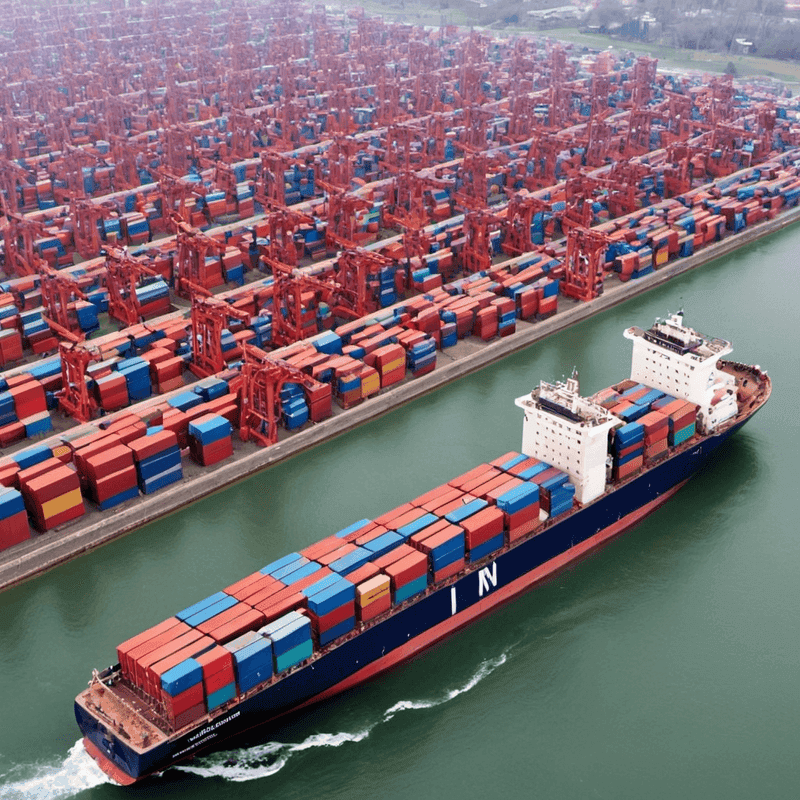
Top RWA Startups
1. Centrifuge
- Description: Centrifuge allows businesses to tokenize their assets (such as invoices) and access liquidity through DeFi protocols.
- Website: Centrifuge
2. RealT
- Description: RealT enables fractional ownership of real estate properties through blockchain, making property investment accessible to a wider audience.
- Website: RealT
3. Maple Finance
- Description: Maple Finance provides decentralized lending solutions for institutional borrowers, leveraging tokenized real-world assets.
- Website: Maple Finance
4. Polymath
- Description: Polymath specializes in security token issuance and compliance solutions, facilitating the tokenization of various assets.
- Website: Polymath
5. Harbor
- Description: Harbor offers a platform for tokenizing private securities, including real estate funds and investment funds, to enhance liquidity.
- Website: Harbor
6. Blocksquare
- Description: Blocksquare focuses on tokenizing commercial real estate properties, enabling fractional ownership and efficient property management.
- Website: Blocksquare
7. BrickMark
- Description: BrickMark tokenizes high-quality real estate properties across Europe, providing investors with fractional ownership opportunities.
- Website: BrickMark
8. Provenance Blockchain
- Description: Provenance Blockchain enhances transparency and efficiency in supply chains through the tokenization of supply chain assets.
- Website: Provenance Blockchain
9. tZERO
- Description: tZERO operates a regulated ATS (Alternative Trading System) for trading digital securities, including tokenized assets.
- Website: tZERO
10. Equisafe
- Description: Equisafe offers a platform for tokenizing real-world assets, focusing on compliance and investor protection.
- Website: Equisafe
11. SolidBlock
- Description: SolidBlock facilitates real estate tokenization and investment opportunities, leveraging blockchain technology.
- Website: SolidBlock
12. RealBlocks
- Description: RealBlocks provides a platform for tokenizing and investing in global real estate assets, catering to both retail and institutional investors.
- Website:RealBlocks
13. Fluidity
- Description: Fluidity specializes in tokenized securities and DeFi solutions, including the tokenization of real-world assets.
- Website: Fluidity
14. Tokeny Solutions
- Description: Tokeny Solutions offers an end-to-end platform for issuing, managing, and trading tokenized securities, including real estate.
- Website: Tokeny Solutions
15. Securitize
- Description: Securitize provides compliance solutions and issuance platforms for digital securities, facilitating the tokenization of various assets.
- Website: Securitize
16. Smartlands
- Description: Smartlands focuses on tokenizing real-world assets, including agricultural and real estate assets, to create investment opportunities.
- Website: Smartlands
17. Meridio
- Description: Meridio enables fractional ownership of real estate properties through blockchain, offering liquidity and investment flexibility.
- Website: Meridio
18. Reitium
- Description: Reitium provides a platform for tokenizing real estate investments, making property ownership accessible and transparent.
- Website: [Reitium](https://reitium.com/)
19. Propellr
- Description: Propellr offers tokenization solutions for real estate and alternative assets, enhancing liquidity and investment accessibility.
- Website: Propellr
20. Fintelum
- Description: Fintelum provides issuance and management services for tokenized securities, focusing on compliance and investor protection.
- Website: Fintelum
21. Zoth
- Description: Zoth focuses on tokenizing physical assets and enabling fractional ownership through blockchain technology, enhancing accessibility and liquidity.
- Website: Zoth
22. Jia
- Description: Jia provides a platform for tokenizing assets and facilitating investment opportunities across various sectors, leveraging blockchain for efficiency and transparency.
- Website: Jia
23. Polytrade
- Description: Polytrade specializes in the tokenization of trade finance assets, enhancing liquidity and efficiency in global trade transactions through blockchain technology.
- Website: Polytrade
24. Onfo Finance
- Description: Onfo Finance offers a platform for tokenizing financial assets, focusing on compliance and transparency to attract global investors.
- Website: Onfo Finance
25. Lofty
- Description: Lofty enables fractional ownership of luxury assets, including art and collectibles, through blockchain technology, providing investment opportunities and liquidity.
- Website: Lofty
26. Robinland
- Description: Robinland specializes in tokenizing real estate properties in emerging markets, offering investors access to high-potential real estate assets.
- Website: Robinland
27. Bluejay
- Description: Bluejay focuses on tokenizing commodities such as precious metals and agricultural products, leveraging blockchain for transparent and efficient trading.
- Website: Bluejay
28. EMoney Network
- Description : E-Money Network is the world’s first public permission blockchain network supporting KYC & AML on-chain enabling both retail users and institutions to tokenise on-chain real-world assets (RWAs) by building on a MiCA-compliant infrastructure with bank-grade security
- Website: EMoney Network
29. Jade City
- Description : Jade City is a gamified RWA platform designed to allow users to earn a sustainable yield from the real world jade value chain.
- Website: Jade City
30. BUK Protocol
- Description : Creating liquid secondary markets onchain for all assets that expire
- Website:BUK Protocol
Top RWA Investors
In Q2 2024, venture capitalists invested $3.194bn (+28% QoQ) into crypto and blockchain-focused companies across 577 deals (-4% QoQ).
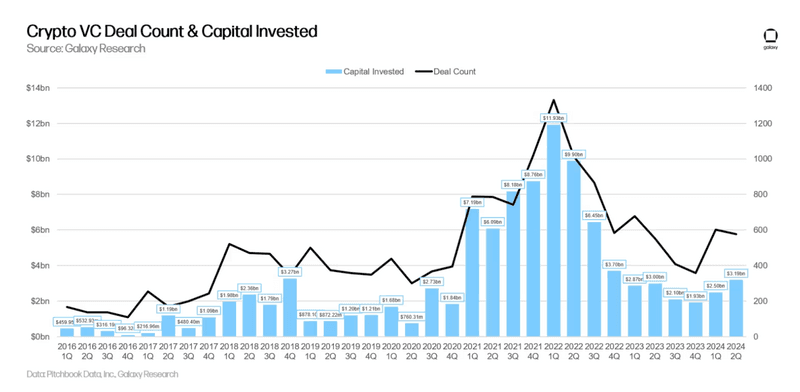
1. Andreessen Horowitz (a16z)
- Description: Andreessen Horowitz is a prominent venture capital firm investing in blockchain and crypto projects, including RWA startups.
- Website: Andreessen Horowitz
2. Polychain Capital
- Description: Polychain Capital is a leading blockchain investment firm focused on decentralized protocols and tokenized assets.
- Website: Polychain Capital
3. Pantera Capital
- Description: Pantera Capital is an investment firm focused on blockchain technologies and digital assets, including RWA innovations.
- Website: Pantera Capital
4. Sequoia Capital
- Description: Sequoia Capital is a global venture capital firm investing in technology companies, including blockchain and digital assets.
- Website: Sequoia Capital
5. Digital Currency Group
- Description: Digital Currency Group (DCG) is a venture capital firm specializing in blockchain and digital currency investments.
- Website: Digital Currency Group
6. ConsenSys Ventures
- Description: ConsenSys Ventures is the venture capital arm of ConsenSys, investing in blockchain startups and decentralized applications.
- Website: ConsenSys Ventures
7. Coinbase Ventures
- Description: Coinbase Ventures is the investment arm of Coinbase, focusing on blockchain, crypto, and DeFi projects globally.
- Website: Coinbase Ventures
8. Galaxy Digital
- Description: Galaxy Digital is a diversified financial services firm dedicated to digital assets and blockchain technology investments.
- Website: Galaxy Digital
9. Blockchain Capital
- Description: Blockchain Capital is a venture capital firm investing in blockchain technology and digital assets, including RWA startups.
- Website: Blockchain Capital
10. Union Square Ventures
- Description: Union Square Ventures is a venture capital firm investing in early-stage technology companies, including blockchain innovations.
- Website: Union Square Ventures
11. Winklevoss Capital
- Description: Winklevoss Capital is an investment firm focusing on digital assets, blockchain technologies, and decentralized finance.
- Website: Winklevoss Capital
12. Draper Associates
- Description: Draper Associates is a venture capital firm investing in early-stage technology startups, including blockchain and digital assets.
- Website: Draper Associates
13. Multicoin Capital
- Description: Multicoin Capital is a thesis-driven investment firm focused on blockchain and crypto assets, supporting innovative RWA projects.
- Website: Multicoin Capital
14. Placeholder VC
- Description: Placeholder is a venture capital firm focused on crypto networks and decentralized finance (DeFi), investing in transformative RWA initiatives.
- Website: Placeholder VC
15. Paradigm
- Description: Paradigm is an investment firm focused on blockchain and crypto assets, supporting projects at the intersection of finance and technology.
- Website: Paradigm
16. Bain Capital Ventures
- Description: Bain Capital Ventures is an investment firm that invests in early to growth-stage technology startups, including blockchain innovations.
- Website: Bain Capital Ventures
17. Fenbushi Capital
- Description: Fenbushi Capital is a venture capital firm focused on blockchain technology investments globally, including RWA developments.
- Website: Fenbushi Capital
18. Hashed
- Description: Hashed is a leading crypto fund and blockchain accelerator, investing in innovative projects that drive the adoption of blockchain technology.
- Website: Hashed
19. Boost VC
- Description: Boost VC is an early-stage venture capital firm that invests in blockchain, crypto, and frontier technologies, including RWA startups.
- Website: Boost VC
20. 1confirmation
- Description: 1confirmation is an investment fund focused on supporting early-stage projects in the blockchain and cryptocurrency space.
- Website: 1confirmation
21. Fabric Ventures
- Description: Fabric Ventures is a venture capital firm investing in decentralized technologies, including blockchain-based RWA solutions.
- Website: Fabric Ventures
22. Electric Capital
- Description: Electric Capital is a digital asset management firm investing in blockchain protocols and infrastructure projects, including RWA innovations.
- Website: Electric Capital
23. Framework Ventures
- Description: Framework Ventures is a leading venture capital firm specializing in blockchain technology and decentralized finance (DeFi). They invest in early-stage projects that aim to redefine the future of digital economies and Web3 infrastructure.
- Website : Framework Ventures
24. Delphi Digital
- Description: Delphi Digital is an independent research and investment firm focused on digital assets and blockchain technology, investing in transformative RWA initiatives.
- Website: Delphi Digital
25. Electric Capital
- A VC firm focused on crypto networks and blockchain protocols, with a strong emphasis on open-source development
- Website: https://www.electriccapital.com/
Democratizing Investments Through Fractional Ownership
Traditionally, investing in high value assets like real estate, private equity, or fine art has been restricted to high-net-worth individuals due to their hefty price tags. RWA tokenization dismantles this barrier by enabling fractional ownership. A single asset can be divided into smaller digital tokens, allowing even smaller investors to participate in the market. This opens doors for a broader range of individuals to diversify their portfolios and access previously out of reach investment opportunities.
1. Tokenizing Commodities: Extending beyond real estate to include assets like gold, oil, and agricultural products.
2. Fractional Ownership in Art and Collectibles: Creating markets for high-value art and collectibles.
3. Supply Chain Financing: Using tokenized assets for innovative supply chain solutions.
4. Insurance: Developing blockchain-based insurance products using RWAs.
5. Green Energy Projects: Funding renewable energy projects through tokenization.
Top Chains That Support RWA and That Are Strong at It
1. Ethereum
- Why: Ethereum remains the most established blockchain for RWA projects due to its extensive ecosystem, security, and support for smart contracts. It offers deep liquidity and interoperability with a wide range of decentralized applications (dApps).
- Notable RWA Projects: RealT (real estate), Centrifuge (trade finance).
2. Polygon
- Why: As a Layer 2 solution for Ethereum, Polygon provides the benefits of lower fees and faster transactions while maintaining access to Ethereum’s vast ecosystem. It's ideal for scalable RWA projects.
- Notable RWA Projects: Real estate and art tokenization.
3. XDC Network
- Why: XDC Network (formerly XinFin) is designed specifically for enterprise use cases, making it highly suitable for RWA tokenization, especially in trade finance and supply chain sectors. Its hybrid blockchain architecture ensures fast, secure, and scalable transactions with minimal fees.
- Notable RWA Projects: Trade finance, invoice factoring, and asset-backed securities.
4. Avalanche
- Why: Avalanche is known for its high throughput, low latency, and customizable subnets, making it ideal for complex and fast-moving RWA projects. It’s particularly strong in the areas of asset-backed securities and real estate.
- Notable RWA Projects: Tokenization of real estate and other physical assets.
5. Solana
- Why: Solana’s high-speed and low-cost transaction processing make it an attractive option for RWA projects that require efficient, high-frequency trading or complex transactions. Its rapidly growing ecosystem supports a variety of RWA use cases.
- Notable RWA Projects: Tokenized securities, art, and real estate.
6. Centrifuge Chain
- Why: Centrifuge chain is purpose-built for RWA, focusing on bringing real-world assets like invoices, loans, and other financial instruments onto the blockchain to access decentralized finance. It’s a leader in connecting RWAs with DeFi.
- Notable RWA Projects: Tinlake, an asset-backed lending platform.
Foundership RWA Investment Thesis
At FoundershipHQ, we believe that the tokenization of Real World Assets (RWAs) is more than just a technological advancement—it's a paradigm shift that will redefine how physical and digital economies interact. Our mission is to back visionary founders who are not only pioneers in this emerging sector but who also possess the strategic foresight, technical acumen, and business savvy to build transformative, scalable companies.
Core Investment Principles
Team Excellence
- We prioritize founders with a proven track record of success, deep domain expertise, and a relentless drive to innovate. We seek teams that blend technical brilliance with entrepreneurial grit, able to navigate the complexities of both blockchain technology and traditional asset markets.
Technological Differentiation
- In a rapidly evolving landscape, we focus on startups that demonstrate a clear technological edge. This includes proprietary technology, innovative use of blockchain for asset tokenization, and robust security protocols. We look for teams that are building platforms with scalability and interoperability at their core, ensuring their solutions can integrate seamlessly with existing systems while driving the adoption of decentralized finance.
Business Model Innovation
- We invest in companies that are not only disrupting existing industries but are also pioneering new business models. This could mean introducing novel ways to unlock liquidity from traditionally illiquid assets, creating new financial products, or developing ecosystems that drive user adoption and network effects. Our goal is to support businesses that have a clear path to profitability, with scalable and sustainable revenue models.
Market Opportunity
- We focus on sectors where the potential for RWA tokenization is vast and underexplored. Whether it’s real estate, intellectual property, compute infrastructure, or commodities, we look for markets where blockchain can solve inefficiencies, reduce costs, and create new opportunities for value creation. We are particularly interested in projects that can operate in heavily regulated environments, demonstrating both compliance and innovation.
Impact and Vision
- We support founders who are not just building businesses, but are also shaping the future of finance and asset management. We seek out visionaries who understand the broader implications of their work and are committed to creating positive, long-lasting impacts in their respective industries.
Our Commitment
At Foundership, we are committed to being more than just investors. We are partners in innovation, providing our portfolio companies with the resources, mentorship, and strategic guidance they need to succeed. As the RWA sector continues to evolve, we will remain at the forefront, identifying and supporting the next generation of market leaders who will shape the future of the digital economy.
Conclusion: The Future of RWA - Real or an illusion?
As we stand at the crossroads of traditional finance and blockchain innovation, the tokenization of Real World Assets presents both tremendous opportunities and significant challenges. While the potential to democratize access, increase liquidity, and enhance transparency is clear, the road ahead is fraught with regulatory hurdles, technological limitations, and market skepticism.
Whether RWA tokenization will become a transformative reality or remain an elusive ideal depends on how these obstacles are navigated. The future of RWAs lies not just in the promise of technology, but in the careful alignment of legal frameworks, market acceptance, and the ability to deliver real value beyond the digital hype.
---
This comprehensive guide outlines the recent progress and future prospects of RWAs in the crypto industry, providing a deep dive into their significance, evolution, regulatory landscape, and emerging opportunities. As RWAs continue to gain traction, they hold the potential to transform the way we interact with and invest in real-world assets.
Liked it? Reach out to bimlesh@foundershiphq.com for any feedback you may have!
At Foundership, we run several startup accelerator programs. Do check our recent announcement on XDC-0xCamp cohort
About Foundership
Foundership is a global web3 and emerging-tech accelerator VC that empowers ventures with a unique blend of Coaching, Capital, and Community.
Our specialized programs, 0xCamp for early-stage startups and LaunchCamp for growth-stage startups serve as catalysts for leveraging the vast potential of the Foundership ecosystem to facilitate token launches and foster scalable growth.
Our cohort programs, which typically last three months, are deeply ingrained with contextual coaching and outcome-oriented approaches. Foundership co-invests up to US $100,000 alongside our esteemed partners in top Web3 startups poised for token launches.
Moreover, our exemplary track record of over 40 global startups valued at over $200 million, spanning five cohorts and nine countries, is a testament to our program's strength.
Foundership's vast network of 80+ coaches, 60+ Capital partners, 80+ ecosystem partners and 10,000+ community members ensures that startups are supported across the value chain. This network fosters robust interactions and mutual support, creating a vibrant startup ecosystem worldwide.
To learn more about Foundership visit:
| Website | Twitter | LinkedIn | Telegram
